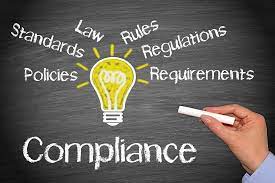Typically, people think that all it takes to set up a small business is to get some money for the products, get a space (online and offline), and begin to sell. However, if you have long-term plans for your business, then you should put the necessary legal requirements in place.
Oluwabunmi Ogbontiba, Principal Solicitor with Teebah Solicitors, shared some important legal requirements for small and medium-scale business owners in an Instagram live session with SmartpreneurNg. Here are some highlights from the session.
Get a corporate identity and a corporate account
Whether or not you think you need it, do yourself a favour and get your corporate bank account sorted out. Some clients (mostly big clients) will never transact business with you via a personal bank account. To avoid losing such potential clients and huge transactions, get your business registered with the Corporate Affairs Commission and open a corporate bank account for your business.
Get your licensing and permits sorted
Depending on the nature of your business, you may need permits and licenses from bodies like the Standard Organisation of Nigeria (SON) and NAFDAC, especially when you are into production, manufacturing and packaging. Don’t wait until they come after you. Be the prim and proper business person who has everything sorted. If you run a restaurant business, you need to get some sanitary certificates and licenses from your local government authority. Who knows? You may need to apply for something like a grant, loan, support or recognition, and be required to provide these licenses and permits. Don’t be found wanting.

Have a policy document
Spell out your policies on recruitment, refunds, cancellation, data privacy, information management and so on. Let everyone know how things work with your business. You should communicate your policies to your employees clearly, and ensure that your partners, investors and other business stakeholders understand what is obtainable. This will spare you unnecessary legal haggles in the future. You can’t run a business without having a clear route.
Always have transactions and deals in black and white
For any dealings you have with partners, dealers, suppliers, contractors, or clients, ensure that the terms and conditions are spelt out in black and white. It is important for all parties to understand what they are getting into. If you cannot get a proper legal professional, maybe because it is inaccessible or you think that it is expensive, ensure that there is a text, email, recorded call or some other record that you can fall back on. Don’t leave your business to oral business transactions. As the saying goes, the shortest pen is better than the longest memory.
Get your tax records right

Some small business owners say that the government has done nothing right for them, and so does not deserve their taxes. Whatever your thoughts are on the matter, you need to get your taxes sorted out for the day of reckoning. Get your Tax Identification Number and pay your taxes. Remit the Value Added Taxes on your products as required. Pay the Personal Income Tax on your income, and if you have employees, get the Pay As You Earn (PAYE) arrangements in place. Some businesses keep operating without paying their taxes until the government representatives come and lock them up because they have not been remitting their taxes. Don’t emulate them; you could lose much more than you might be trying to save.
Furthermore, you need not be afraid of huge taxes as a small business owner. There are allowable deductions, things that the government permits you to spend your revenue on, before paying taxes. Even if you are not operating or you do not have any revenue, you should file No Tax Returns.
Always take the legal route. When it comes to taxes, there are benefits that you enjoy as a properly registered small business.
File your annual returns
A fair number of business owners claim that they do not know about annual returns, while some others think that it is the same as taxes. An annual return is something that you file for as long as your business exists, whether you have started operations or not. According to the Company and Allied Matters Act 2020, it is compulsory, and if you fail to file annual returns for a certain number of years, the CAC may assume that your business no longer exists and strike out your name from their records.
Consider trademark registrations
Besides your business name, there could be other items, words, or phrases that people associate with your business, or that you want them to associate with your business. Go a step further and trademark them so that they are protected. Your logo and catchphrase can be stolen if they are not trademarked. Protect what you need to protect.
Obtain a SCUML certificate
Depending on the volume of funds that come into your business, you may also need to get the SCUML certificate. This is a certificate that is issued by the Special Control Unit against Money Laundering (SCUML) under the Economic and Financial Crimes Commission (EFCC). This certifies that you are not involved in any money laundering business. With this certification done, no institution will question you for having large amounts of money in your bank account since it has already been certified that you are not involved in any money laundering activities.


